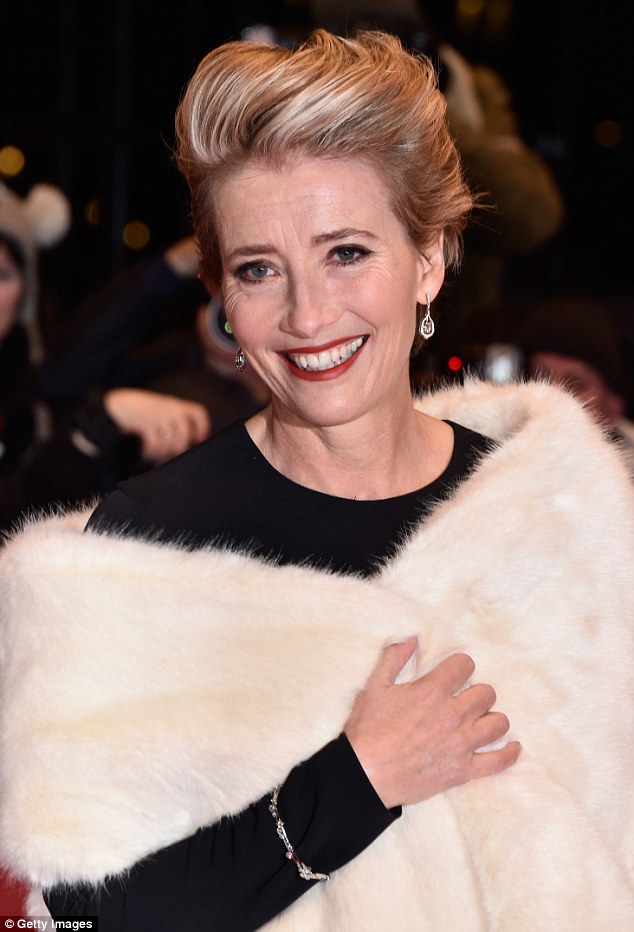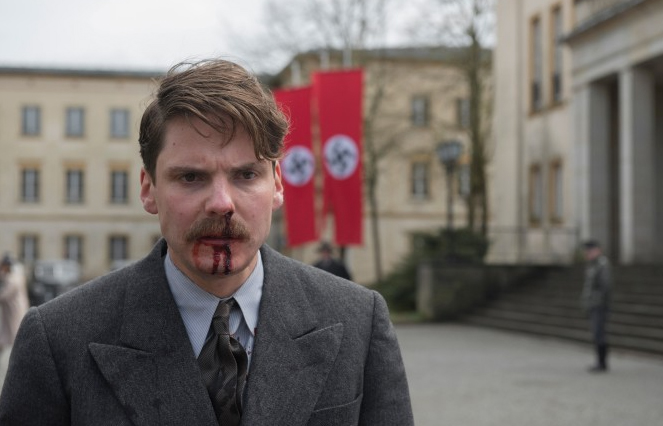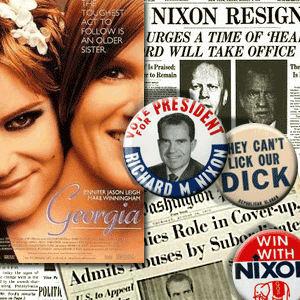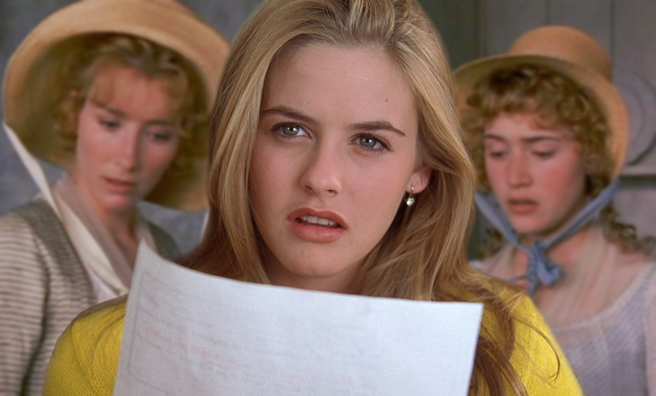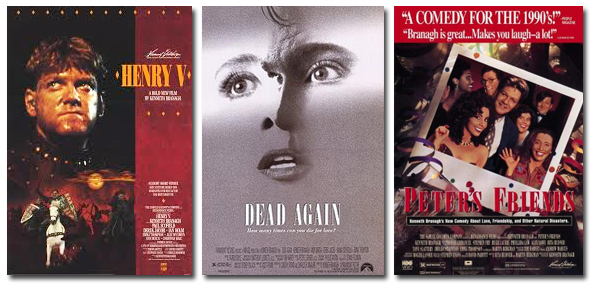Manuel is working his way through all the LGBT-themed HBO productions.
Last week we looked at Gus Van Sant Palme d’Or winner, Elephant, which sparked some great conversations about the merits of that one shower scene. I’ll say this: that so many of us had such visceral reactions to his film is in itself worth celebrating. Also, from hate crimes to gender transitions to mass shootings, was HBO ahead of the curve or are we merely being shown how little has changed in this past decade?
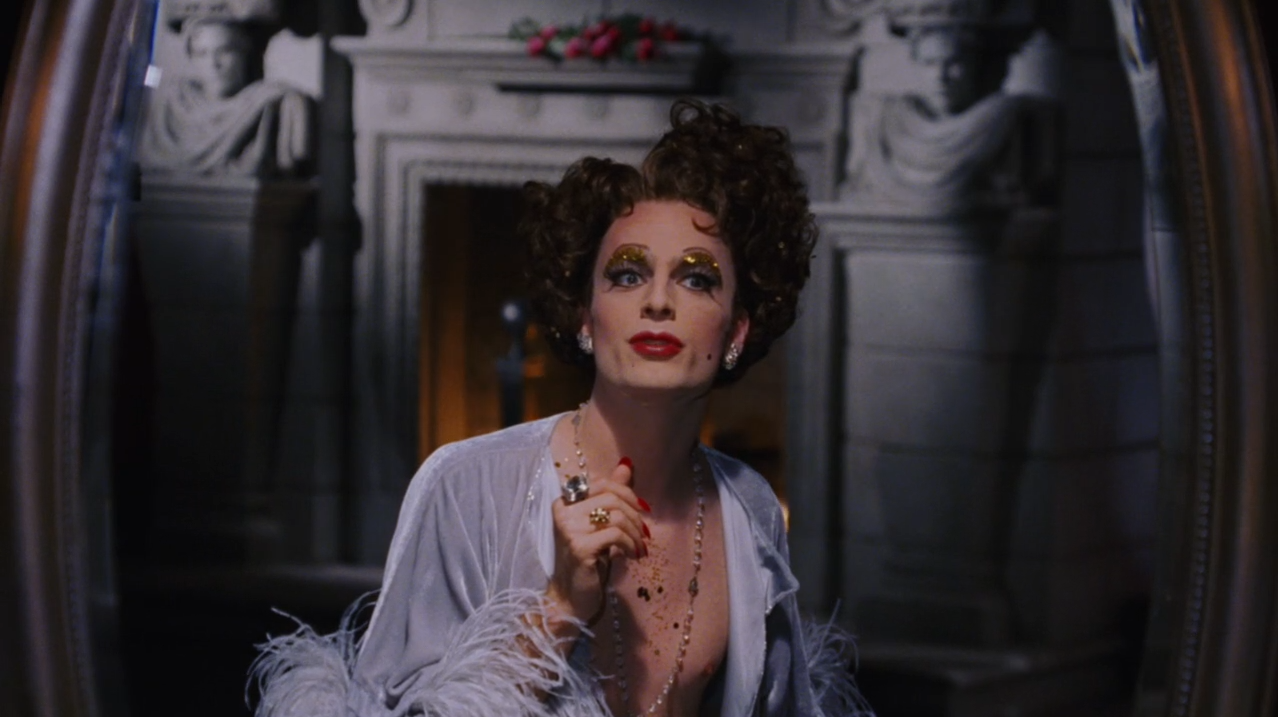
This week we tackle Tony Kushner and Mike Nichols’ groundbreaking miniseries, Angels in America. It took Kushner’s Pulitzer Prize-winning play close to ten years to make it on screen. Beginning as a Robert Altman two-part TV movie (with rumored roles for Julia Roberts, Daniel Day-Lewis, Robert Downey Jr. and Tim Robbins), later being offered to such varied directors as PJ Hogan, Neil LaBute, Jonathan Demme, and Gus Van Sant himself, HBO eventually stepped in and handed Mike Nichols Kushner’s miniseries script. The rest, as they say, is history. And since this is such a momentous piece of television history, we’re hosting it as a Hit Me With Your Best Shot celebration. (Later tonight, you can see Nathaniel's choices and those from other participants)
First my runner-up:
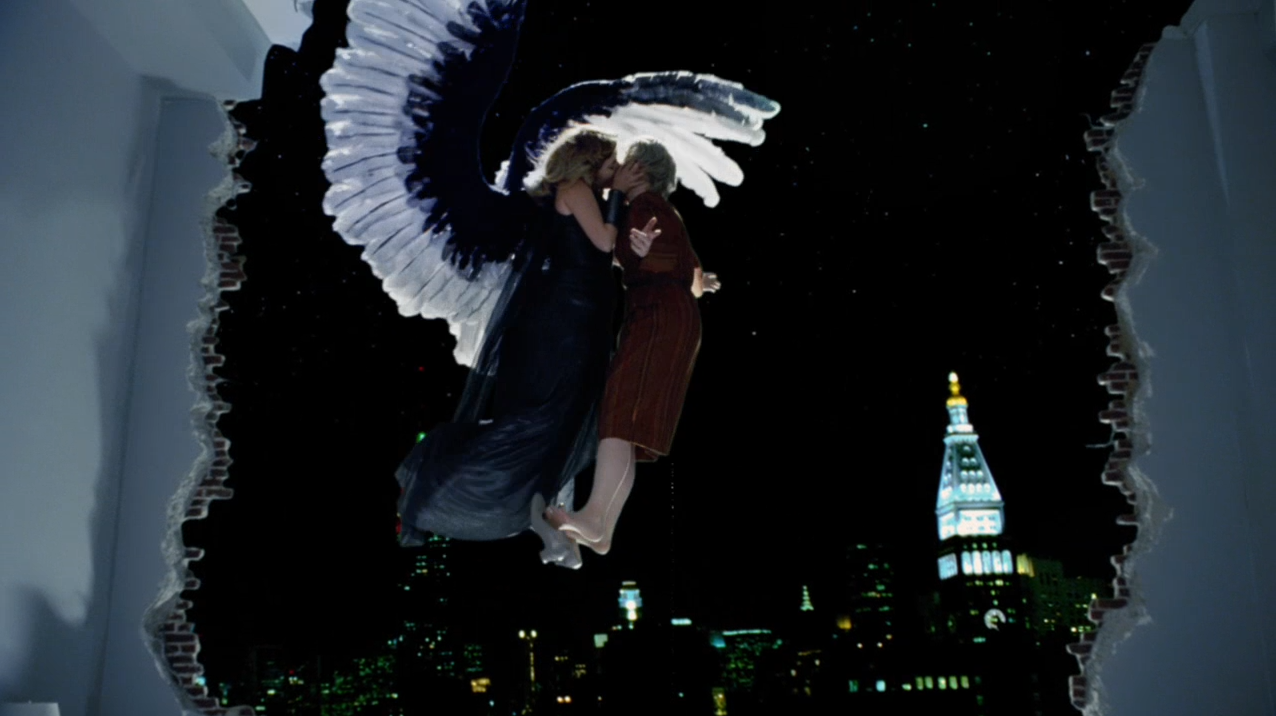
Orgasm as heavenly combustion. Lesbianism as holy communion. Emma and Meryl. There are so many things to love about this image (I love Hannah Pitt’s commitment to keeping her shoes on, for example), and it’s in a way a companion piece to my all-time favorite moment in the series.
My favorite shot: (and yes, I know it's cliché)
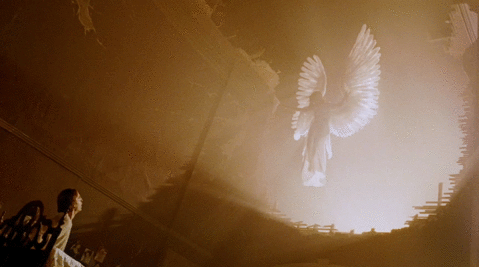
A New York City apartment. Amidst the Reaganite politics of the United States in the late 80s, former drag queen Prior Walter, a recently diagnosed AIDS patient, has been left by his partner Louis and finds himself all alone with fevers, sores, night sweats, visions of ancestral messengers, heavenly echoes of prophecy and the coming of an Angel. So ends “The Messenger” the third episode of the HBO miniseries (ie. the end of Millennium Approaches, the first half of Kushner’s play). By the start of Perestroika, and upon retelling his encounter with the female Angel to his friend Belize, Prior can’t help but remark that: “The sexual politics of this are very confusing.” The scene as written on the page is breathtaking. In Nichols’ hands it’s heavenly.
It’s not just that this shot is beautiful, though it is what with those yellow hues, the gorgeously frayed roof, and Thompson’s pearly white Angel costume. For me, it’s one of the moments where Kushner’s own “pared down” style of Brechtian theatricality, and Nichols’ commitment to naturalism find a perfect balance. This “Gay Fantasia on National Themes” lives and dies in its tonal shifts, being both a gay melodrama (with its breakups, divorces, sex romps) and a feverish day-dream (with its angels, ghosts, sex romps). This one scene, with the Angel announcing that “The Great Work begins” is the apotheosis of both, underscoring both Prior’s loneliness and increasingly loose connection with the world around him after losing Louis, and highlighting the fantastical elements of Kushner’s script which connect the AIDS plague with issues of movement, migration, faith, and humanity. If the human race is to survive, they must stop. Stop moving. Stop wanting. Stop desiring. And perhaps more importantly, stop having sex. The allegory is both blunt and nuanced. By the end of the piece, Prior says he desires more life,
It just... It just... We can’t just stop. We’re not rocks - progress, migration, motion is... modernity. It’s animate, it’s what living things do. We desire. Even if all we desire is stillness, it’s still desire for. Even if we go faster than we should. We can’t wait.
I also love the framing; with its wide angle, it’s almost like we’re watching a stage (bonus: note Prior’s actressexual altar in the corner!) and while Thompson’s angel (a bemused bird-like creature) crashes the scene, you can almost see the wires showing (“and maybe it’s good that they do,” Kushner’s playwright notes point out). It’s not surprising this was used as the main image in the promo materials for the miniseries (it’s even the DVD cover!) as it so embodies the duality that so defines this piece: ethereal and corporeal, the heavenly and the earthly; heck, even the gay and the straight. Yes, the Angel and Prior copulate, but it’s as queer a configuration as one could ask for (“she has eight vaginas” we’re told). Yes, the sexual politics are very confusing. For they have to be. This is a messy, sprawling piece whose ragged edges merely mirror the fragmented world it is trying to depict and, in turn, change.


Fun Awards Fact: In 2004, Angels in America broke the record for most Emmys awarded to a single program (11 of 21 nominations), a record then held by another landmark work on minority representation: ABC’s 1977 Roots: The Saga of an American Family. That record was later broken again in 2008 by another HBO megahit: Tom Hooper’s John Addams. You’ll take solace in knowing that Hooper himself lost the Emmy to Nichols in 2004 (where the former was nominated for Prime Suspect 6) and to Jay Roach (for Recount) in 2008.
Next week: We pause again on HBO’s television output by looking at three LGBT characters from three of HBO’s most talked-about television shows: The Sopranos, The Wire and Carnivàle (You can stream episodes of each on HBO Go and Amazon Prime). Any fans of these dark dramas?
 Friday, February 19, 2016 at 2:22PM
Friday, February 19, 2016 at 2:22PM 